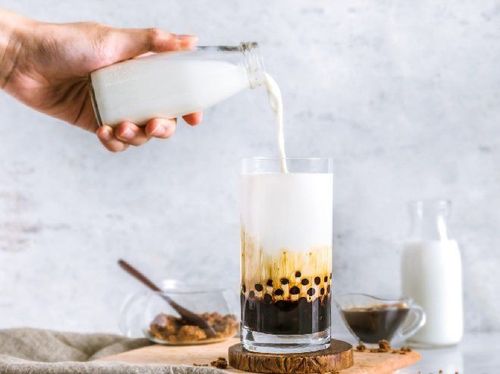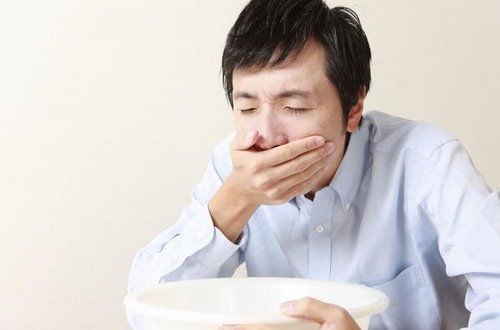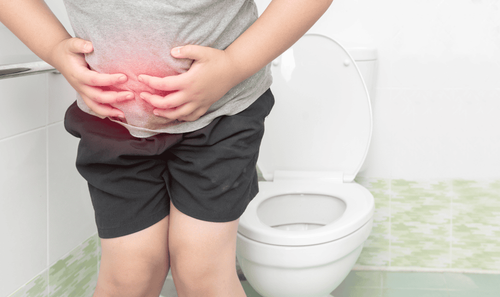Bubble tea has become a popular drink among many people. However, there is still a question: Does drinking bubble tea have any benefits, or is it harmful?
1. Some Nutritional Information About Bubble Tea
The arrival of bubble tea has been enthusiastically received by young people. Researchers have analyzed samples to determine the nutritional composition of this beverage. Based on various analyses, scientists have found that in 240ml of bubble tea, the nutritional content is as follows:
- 120 calories
- 0g protein
- 1,5 g lipid
- 28 g carbohydrate
- 0 g fiber
- 28g sugar
This is based on the average recipe commonly chosen by consumers. However, the calorie and nutrient content can vary depending on preferences, such as adding more sugar or toppings. In some cases, a cup of bubble tea can provide up to 200 calories. Although bubble tea contains small amounts of folate, calcium, iron, and selenium, these amounts are minimal and insufficient to meet the body’s daily needs.
2. The Benefits of Drinking Bubble Tea
Young people, and even adults, enjoy drinking bubble tea, sometimes even skipping meals and replacing them with bubble tea. This raises concerns among parents: Does bubble tea provide any health benefits? Does it supply the four main nutritional groups needed for children as outlined in the nutritional pyramid?
Based on nutritional analysis, bubble tea provides a high amount of calories and carbohydrates, which can give the body energy, but the health benefits are very limited. However, drinking bubble tea offers two potential benefits:
Lowering Blood Pressure
Green tea-based bubble tea is a good beverage for people with high blood pressure. Consuming bubble tea containing green tea can help reduce blood pressure levels and decrease bad cholesterol levels. This may help prevent cardiovascular diseases and strokes.

Reducing Cancer Risk
Green tea contains antioxidants that help neutralize harmful free radicals. Additionally, green tea can reduce the risk of liver cancer, breast cancer, prostate cancer, and colorectal cancer due to its selenium content. However, not all bubble tea recipes include green tea, so this benefit depends on the recipe used.
3. Risks of Consuming Bubble Tea
While there are some minor benefits to drinking bubble tea, these benefits are negligible and do not significantly contribute to health. What should be more concerning are the potential harms of bubble tea consumption. Bubble tea typically uses sugar or condensed milk for sweetness, which poses risks for regular consumers.
The higher the sugar content in bubble tea, the greater the potential harm to the consumer’s health. Excess sugar consumption can lead to obesity, diabetes, high cholesterol, and other metabolic disorders. You may also face an increased risk of cardiovascular disease, liver disease, or cognitive decline. For children, aside from obesity, there is an increased risk of rickets and developmental delays, which can have long-term impacts on physical and intellectual growth.
Bubble tea often combines various ingredients such as tapioca pearls, tea, milk, or egg custards. If you are allergic to any of these, consuming bubble tea can be extremely dangerous. Additionally, if the ingredients are of unclear origin, you may also face risks of food poisoning.
4. Solutions to Reduce the Harm of Bubble Tea
The benefits of bubble tea are limited, while the harms are significant. Therefore, it is advisable to make modifications to create a healthier version of bubble tea.
Reduce the Sugar Content to an appropriate level
Making your own bubble tea at home can be a fun alternative to purchasing pre-made versions. By doing this, you can eliminate sugar entirely or replace it with healthier sweeteners like honey to ensure your drink is both delicious and healthier.

Switch to Low-Fat Milk
Consider using soy milk, nut milk, coconut milk, or other healthy milk alternatives instead of regular milk. If you have a milk allergy, these options are also excellent substitutes.
Reduce or Eliminate Toppings
Toppings like tapioca pearls often contain high amounts of sugar or artificial sweeteners. You can choose to omit toppings or reduce their quantity. Many bubble tea drinks also come with whipped cream for a richer flavor, but these additions can trick your taste buds and quickly lead to weight gain.
In conclusion, you can enjoy bubble tea in moderation while balancing its ingredients based on the information above. Although bubble tea is generally considered an unhealthy beverage, consuming it occasionally will not significantly harm your body.
To arrange an appointment, please call HOTLINE or make your reservation directly HERE. You may also download the MyVinmec app to schedule appointments faster and manage your reservations more conveniently.
Reference source: webmd.com













